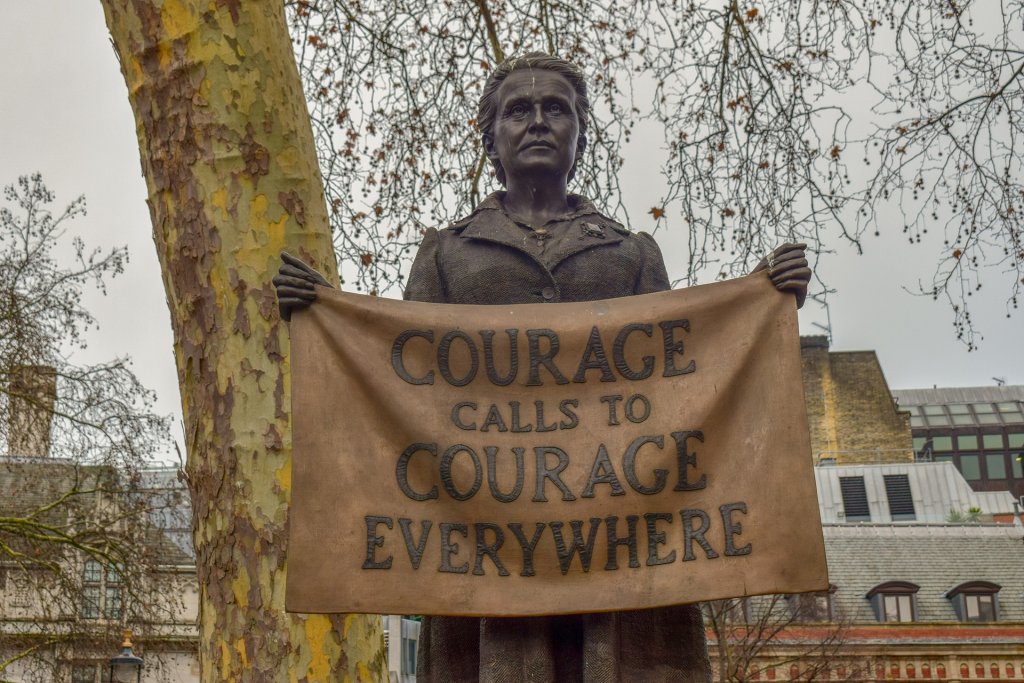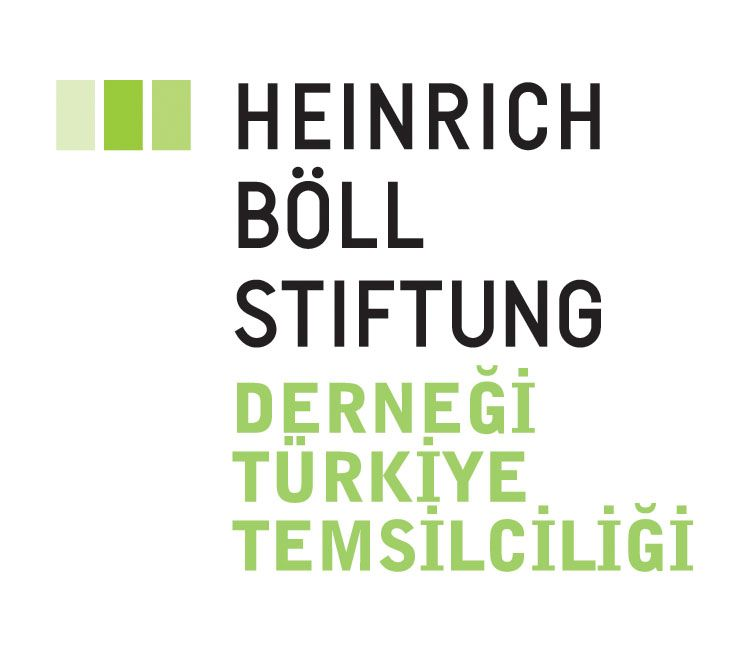
The role of women in foreign policy has been increasingly aspired to and discussed since the early 1990s. However, due to the different behavioral patterns imposed on women and men by gender norms, women worldwide still have difficulty finding a place in foreign policy. Research findings on women’s political representation reported that men generally focus on security and economic issues and women on issues concerning the private sphere and women (Acker, 1990). Defense and military issues have been identified with masculinity, and women’s contribution to this field has been restricted due to gender norms (Kronsell, 2005). According to widely accepted stereotypes, masculinity is characterized by being brave and rational and associated with leadership, warrior, and independence. In contrast, femininity is characterized by adjectives such as being emotional, subordination, peaceful and acting naturally.
Although there has been a significant rise in feminist international relations studies since the 1990s, women could not find a credible space for themselves in the field of foreign policy and diplomacy in the 1990s, which was referred to as a “hot peace” environment dominated by security concerns. However, since the mid-2000s, in parallel with the rise of soft power, humanitarian diplomacy, and public diplomacy discussions in international relations, women’s contribution to the field of foreign policy started to be recognized to a greater extent.
Turkish foreign policy has not been left out of these discussions and has developed in line with the general trend in the world (Süleymanoğlu-Kürüm & Rumelili, 2018). I will discuss the rise of women in Turkish foreign policy and diplomacy in this paper from a historical perspective and provide suggestions to increase women’s role and effectiveness and create a more gender-equal Turkish foreign policy.
To understand the rise of women in Turkish foreign policy, it is first necessary to elaborate on women’s traditional roles in Turkish diplomacy. When we look at feminist history, just like the European imperial palaces, the women of the Ottoman court have played a significant role in diplomacy and acted as a communication channel to access the often-inaccessible Ottoman sultan. They did so by exchanging letters and gifts with women of the European palaces and directly communicating with resident representatives of European powers in İstanbul since at least the 15th century (Pierce, 1993: 221). Since the Ottoman Empire did not accept resident diplomacy and the principle of reciprocity until the 18th century, it did not have established European representations (Arı, 2004: 52-53). The women of the palace filled this gap by assuming essential diplomatic responsibilities. However, with the professionalization of diplomacy with the Congress of Vienna, just like in Europe, the diplomatic roles of the women of the Ottoman court were limited due to the establishment of an all-male diplomatic structure, thereby making diplomacy and foreign policy male-dominated domains (Rumelili & Süleymanoğlu-Kürüm, 2018: 90).
On the other hand, with the influence of the feminist movement that emerged in the 19th century in the Ottoman Empire and strengthened with the modernization process, women gained the right to work in paid jobs, become civil servants in 1913, and access to higher education in 1914. In addition to securing these rights from the Ottoman state, the early feminist movement encouraged Turkish women to actively demand political, economic, and social rights in the Turkish Republic, founded in 1923. Turkish modernization in the Republican era perceived the visibility of women in the public sphere as an essential indicator of modernity.
The new Turkish woman idealized by the modernization of the Republic should be well-educated, have an appearance that would aspire to the professions traditionally performed by men, and be active and visible in the public sphere. In this framework, the first visibility of women, who gained the right to education and employment, in the field of foreign policy appeared in 1932, when a woman applied for the recruitment exams of the Ministry of Foreign Affairs for the first time. Mustafa Kemal Atatürk was informed about the issue and instructed that the female candidate should be subjected to the same recruitment procedures. As such, Adile Ayda, the first Turkish woman diplomat, took office in 1932. This can be a record that Turkish diplomacy can be proud of. As a matter of fact, in 1933, only 13 countries had female diplomats, and one of them was Turkey (Bloch, 2004).
The most crucial obstacle to women’s influence in foreign policy is the marriage bar applied to female diplomats in many countries in official diplomacy. Such bar or restriction has never existed in Turkish diplomacy. However, the first Turkish woman diplomat, Adile Ayda, resigned only after two years when a decree was issued in 1934 banning women from being appointed to overseas representation.
While 1934 witnessed this practice, which undermined the visibility of women in diplomacy, it also paved the way for women’s presence in the political arena, as women were granted the legal right to be elected in the same year. It is possible to explain this contradiction with the incompatibility between the expectations of the modernization process and the existing gender norms and stereotypes in society and foreign policy-making practices.
It is possible to take the year 1957 as the real turning point in the visibility of women in Turkish foreign policy as the 1934 decree was abolished and paved the way for the first Turkish women diplomat, Adile Ayda, to return to her diplomatic career. However, it took another 25 years for a female diplomat to rise to the level of ambassador when Filiz Dinçmen was appointed to The Hague and became the first Turkish woman ambassador. However, the appointment of the second female ambassador took another ten years, and Solmaz Ünaydın became the second Turkish female ambassador in 1992. In the interviews she gave to the media, Ambassador Ünaydın stated that she had difficulties as a woman and that the title of ambassador was mainly reserved for men who graduated from Galatasaray High School and Mülkiye (today Ankara University’s Faculty of Political Sciences) within the Ministry, and that she waited eight years while the men promoted to the rank of ambassador in 3-4 years. On the other hand, Solmaz Ünaydın also underlined the personal efforts of Turgut Özal and Süleyman Demirel in increasing the role and visibility of women in diplomacy (Pamir, 2006; Süleymanoğlu-Kürüm and Rumelili, 2018: 13).
It is important to note that Tansu Çiller took office as Turkey’s first female Prime Minister in 1993, one year after Solmaz Ünaydın was appointed ambassador. Anna Philips (1998) emphasized the importance of having a role model while underlining the importance of women’s political representation. Tansu Çiller, who also served as the Minister of State in Charge of the Economy between 1991 and 1993, continued to serve as the Minister of Foreign Affairs between 28 June 1996 and 30 June 1997 in the coalition government formed by the Welfare Party and the True Path Party in the period following his prime ministership and remained on the political scene.
1998 can be considered another milestone regarding the visibility of women in Turkish diplomacy. The ratio of female career employees in the Ministry of Foreign Affairs increased from 13,4% in 1990 to 24% in 1998. After this milestone, the increase in the ratio of female career employees in the Ministry continued at a slower pace. For example, this ratio increased by only 2,32 points until 2014, reaching only 26,32%.
The leap in the ratio of women in the Ministry of Foreign Affairs in 1998 was made possible by a decree issued that year, abolishing the prohibition of assigning diplomatic couples to the same city. At the same time, for the first time, three women diplomats were promoted to the rank of ambassador (Şule Soysal to Belarus, Veka İnal to the Philippines, and Füsun Çetintaş to Singapore). This decree touched upon an integral structural inequality in front of women diplomats, who managed to secure a place in the diplomatic profession and liberated them from the difficult choice of resigning from their posts to be with their spouses or taking extended unpaid leaves (Ergin, 1998; Süleymanoğlu-Kürüm and Rumelili, 2018: 11, 14). Not having to choose between family life and their professions has paved the way for many women to aspire to a career in diplomacy. The practice of appointing couples in the same city or overseas representations close to each other has been improved over the years, and the Ministry of Foreign Affairs has become more gender equal. In line with this, the ratio of female ambassadors in Turkey by 2021 reached 25%.
Studies on gender and diplomacy underline that women try to find a space for themselves with individual-level gender performances instead of engaging in feminist activism (Süleymanoğlu-Kürüm & Rumelili, 2022). Many women diplomats in Turkey, in the words of the second Turkish woman Ambassador Solmaz Ünaydın, “played with the rules of the game” and acted against the stereotypes associated with femininity by performing stereotypes such as rationally and not showing their emotions. Such gender performances opened space for more women, and their visibility is boosted thanks to the rise of humanitarian diplomacy and soft power in foreign policy, which valorized stereotypes associated with femininity (Süleymanoğlu-Kürüm & Rumelili, 2022).
In feminist studies, it is argued that marginalized communities have a greater chance of representing the whole (Jaggar, 2004: 55-57). Women’s visibility in a high-status field of diplomacy in Turkey will ensure that women’s issues and experiences are considered in foreign policy-making processes. It should be remembered that quotas still play an important role in ensuring the meaningful participation of women for a more gender-equal Turkey. Increasing descriptive representation is likely to relieve women from engaging with different gender performances to seek individual success and find a space for themselves. Women who can be themselves are more likely to reflect on women’s issues in the policy-making process.
Kaynakça
Acker, Joan. 1990. ‘Hierarchies, Jobs, Bodies: A Theory of Gendered Organisations’. Gender and Society 4 (2): 139-158.
Arı, Bülent. 2004. ‘Early Ottoman Diplomacy: Ad Hoc Period’. Nuri Yurdusev (der.), Ottoman Diplomacy, Conventional or Unconventional? Basingstoke and Hampshire: Palgrave Macmillan: 36–65.
Ergin, Sedat. 1998. “Dışişleri Kadınlardan Sorulacak”, Milliyet, 22 Şubat, http://www.hurriyet.com.tr/index/ArsivNews. aspx?id=-7352 (Erişim Tarihi 1 Eylül 2016).
Pamir, Balçiçek. 2006. ‘Japonya Büyükelçisi Solmaz Ünaydın: Kadınım diye tam 8 yıl büyükelçi yapmadılar’, Sabah, 28 Ağustos http://arsiv.sabah.com.tr/2006/08/28/pamir.html, (Erişim Tarihi 24 Nisan 2017).
Peirce, Leslie P. 1993. The Imperial Harem: Women and Sovereignty in the Ottoman Empire. New York: Oxford University Press.
Phillips, A. (1998). The politics of presence. OUP Oxford.
Rumelili, Bahar ve Rahime Süleymanoğlu-Kurum. 2018. ‘Women and Gender in Turkish Diplomacy: Historical Legacies and Current Patterns’. Karin Aggestam ve Ann Towns (der.), Gendering Diplomacy and International Negotiation. Basingstoke, Palgrave Macmillan: 87-106.
Süleymanoğlu-Kürüm, Rahime ve Bahar Rumelili. 2022. ‘From Female Masculinity to Hegemonic Femininity: Evolving Gender Performances of Turkish Women Diplomats’. The Hague Journal of Diplomacy, 1 (aop): 1-30.
Süleymanoğlu-Kürüm, Rahime ve Bahar Rumelili. 2005. ‘Diplomaside Kadın ve Egemen Maskülenlik: Değişen Normlar ve Pratikler’. Uluslararası İlişkiler, 15 (57): 3-18.
Jaggar, A. M. (2004). Feminist politics and epistemology: The standpoint of women. In S. Harding (Ed.), The feminist standpoint theory reader: Intellectual and political controversies (pp. 55-66). Routledge.
Kronsell, Annica.2005. ‘Gendered practices in institutions of hegemonic masculinity. International Feminist Journal of Politics, 7 (2): 280–298.
Zarakol, Ayşe. 2011. After Defeat: How the East Learned to Live with the West. Cambridge, Cambridge University Press.

Assoc. Prof. Rahime Süleymanoğlu-Kürüm is a faculty member in the Department of Political Science and International Relations at Bahçeşehir University and Jean Monnet Chair of Feminist Epistemic Justice Beyond the European Union (FEJUST). She completed her undergraduate degree in International Relations at Eastern Mediterranean University in 2005, and her Master’s degree in International Law at the University of Nottingham in 2006. Dr. Süleymanoğlu-Kürüm also received her PhD in Politics and International Relations from the University of Nottingham in 2012. Currently, she is an external research fellow of the Nottingham Interdisciplinary Centre for Economic and Political Research (NICEP). Dr. Süleymanoğlu-Kürüm conducts research in the fields of Europeanization, European Union and gender equality policies, gender in diplomacy, and elite sociology in bureaucracy. She is the author of the book ‘Conditionality, the EU and Turkey’, published by Routledge in 2019, and the editor of ‘Feminist Framing of Europeanisation’ published by Palgrave Macmillan in 2021. Her articles have been published in high-impact journals such as Geopolitics, Political Studies Review, Third World Quarterly, and the Journal of Common Market Studies.
To cite this work: Rahime Süleymanoğlu Kürüm, ” Role of women in Turkish foreign policy: Gender-equitable future in Turkey”, Panorama, Online, 02 January 2023, https://www.uikpanorama.com/blog/2023/01/02/rs/

This article has been prepared with the support provided to the International Relations Council and the Global Academy by the Heinrich Böll Stiftung Association Turkey Representative within the scope of the project titled ‘Foreign Policy for the 21st Century; Peaceful, Equitable, and Dynamic Turkey’.
Copyright@UIKPanorama. All on-line and print rights reserved. Opinions expressed in works published by the Panorama belongs to the authors alone unless otherwise stated, and do not imply endorsement by the IRCT, Global Academy, or the Editors/Editorial Board of Panorama.

